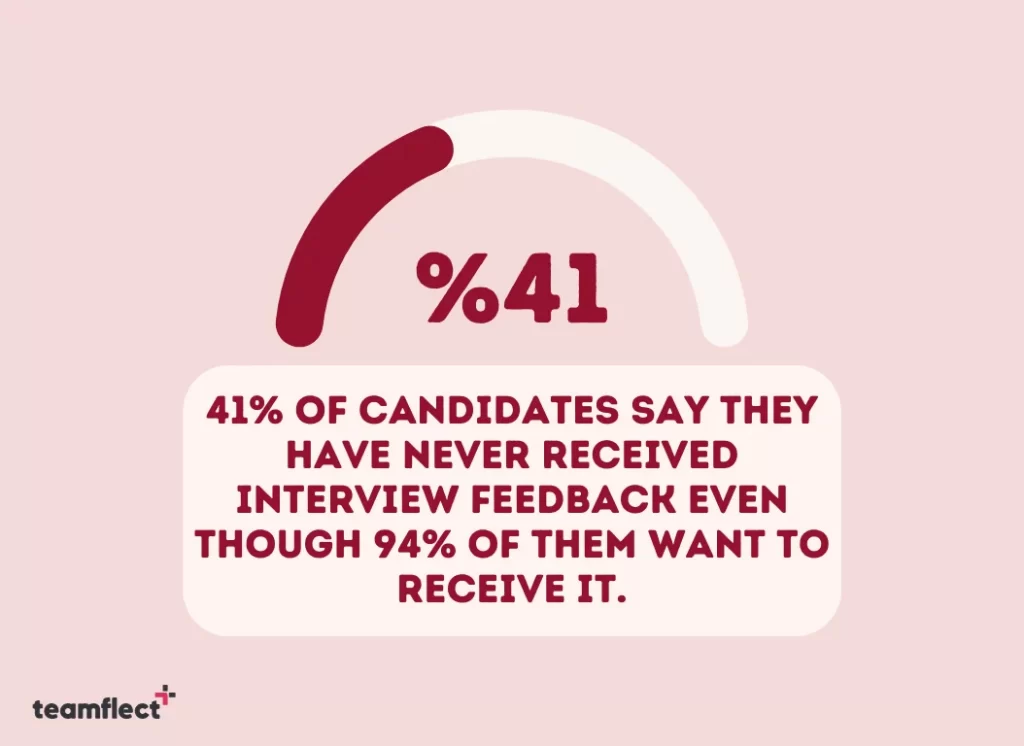As a hiring manager, you will most likely interview a large number of applicants and you should make use of this number to create favorable word-of-mouth referrals and a positive impression of your organization.
We can also use statistics to illustrate the value of the interview feedback further. According to research, 52% of candidates are more likely to stay in contact with companies if they have given interview feedback.
However, 41% of candidates say that they never have received interview feedback even though 94% of them want to receive it.

Another important component of creating a seamless interview process is using the right interview feedback examples.
So, you need to read our article to equip yourself with the best interview feedback examples and learn about interview feedback best practices, why interview feedback matters, how to ask for candidate feedback, and more!
Without further ado, let’s dive deeper and explore the interview feedback process for both candidates and interviewers!
Table of Contents
Embrace Feedback After Recruitment
The true feedback journey begins after recruitment. Continuous feedback should be a part of any workplace. If your organization is remote or using Microsoft Teams regularly, then the best feedback platform for you and your people is beyond the shadow of a doubt, Teamflect. With customizable feedback templates and options for external, anonymous, and 360-degree feedback, Teamflect is the best feedback tool in the Microsoft Teams ecosystem.



